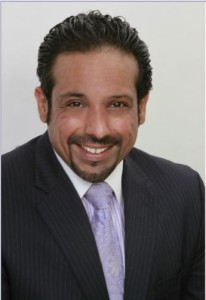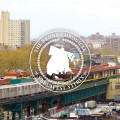 Polanco Politics: Confronting Dominican Racial Injustice
Polanco Politics: Confronting Dominican Racial Injustice
by Juan Carlos “J.C.” Polanco, Esq., MBA
Born in the Dominican Republic but stripped of their citizenship, the children of Haitians living there are now being forced out of the only home country they know. This racial injustice happening as you read this article. Imagine if the Obama administration were doing this to Dominican and Mexican “Dreamers” and their parents.
The Dominican Republic’s record on race relations parallels those of America’s Deep South during the Jim Crow era and many harbor views that would qualify a membership in our nearest KKK chapter. Everyday vernacular includes awful racist terms and one song played in almost every Dominican party is “El Africano.” The entire song connotes a black man speaking in what is supposed to be an ape scaring a little girl. Impressionable Dominican children often dance to this “hit” song by Wilfredo Vargas, a black man.
Recent high court rulings reinterpreting the Dominican constitution regarding the citizenship of those who immigrated to the D. R. after 1929 is an incredible example of anti-Black racial prejudice. In fact, over 250,000 people have until June 16 to register with the Dominican government by providing documents many do not possess or have never possessed in the first place. By the end of this week, hundreds of black professionals with generations of family ties to the Dominican Republic find themselves stateless.
As an educator for over fifteen years and, for the last decade, a professor of Latino Studies at the City University of New York, my interest in race relations in Caribbean has a great deal to do with the fact that my own parents are from the country and I am a product of their biracial relationship. I have visited the Dominican Republic several times but my experience playing baseball with a traveling league in the city of Santiago –where my dad grew up– changed my life forever.
While there, I witnessed the 1994 presidential contest between incumbent former dictator Joaquin Balaguer and the populist Black Dominican, Dr. Jose Francisco Pena Gomez. Hands-down, this was one of the most blatantly racist campaigns I have ever experienced. I saw many black and brown men disseminate campaign flyers caricaturing Dr. Gomez as a gorilla. I will never forget the hatred in the eyes of the campaign worker who rabidly informed my uncle that Dr. Gomez was a “damn Haitian.”
So virulent is the anti-black sentiment that the Dominican government created of an entirely new classification of people known as Indio. As well as developing dozens of categories describing various hues of skin complexions. Although over 90% of the island is of African ancestry, we see Indio, dark, and light, oat, toast and light, and medium and brown, both dark and light.
Dominicans who support the latest mass deportation effort rarely acknowledge that it was Haitian hero, Toussaint L’Ouverture whose army of liberation marched into the city in 1801 –against the wishes of Napoleon Bonaparte– and abolished slavery while uniting the island under a previously signed Treaty of Basel that gave the eastern portion of the island to the French. The desire to abolish slavery on the Spain-controlled side of Hispanola ultimately cost Toussaint his life as he was later killed by Bonaparte.
Today, the Dominicans supporting the atrocious laws targeting those of Haitian ancestry also fail to remember that their nemeses shed bled to defend the sovereignty of the Dominican Republic during the War of the Restoration while expelling the oppressive and racist Spanish regime, once and for all.
Out of willful historical ignorance and, perhaps, a sense of white supremacy, Dominican government leaders dedicate monuments, streets and cities to their Spanish oppressors; they yearn to identify as Spanish; and they equate all things good to their “European” lineage. Consequently, they blindly celebrate and participate in the mass deportation of black men, women and children who are Dominican by birth, culture and affinity.
The murderous dictator, Rafael Leonidas Trujillo, who ruled the country with an iron fist from 1930 until his assassination in 1961 also participated in several campaigns to “whiten” the Dominican ethnicity.
One involved the mass killing of close to 18,000 Haitians near the Massacre River on the border between the two countries in a three-week terror campaign in 1937. Some historians put the number closer to 30,000. Because it was difficult for Trujillo to differentiate between the Haitian and the black Dominican often the test before certain death was asking the potential victim to pronounce the word “parsley.” If the pronunciation sounded French as opposed to Spanish, the unlucky victim would be hacked to death with a machete and lifeless body thrown into the river. After weeks, all the bodies floated to the top of the river, hence the name, Massacre River.
Trujillo admitted guilt and agreed to pay a fine to Haiti afterwards. Yes, my friends, Trujillo, who slaughtered hundreds simply apologized and paid a fine. Sad.
The culture of white supremacy continued with the policy of Dominicanization and teaching so-called, Policy Sense, in the universities. The concept of Haitians being racial inferiors was simply justified by citing their blackness, African roots, voodoo and slave ancestry. Apartheid South Africa and the Jim Crow American South had nothing over Santo Domingo when it came justifying white supremacy.
Thus, fifty years later the world watches another mass deportation of Haitians and Haitian-Dominicans from the Dominican Republic. Would the United States or any civilized nation have accepted Adolfo Hitler deporting Jews from Germany, Austria, Poland and all of their conquered territories? Well, they did. And the Jewish Holocaust followed.
Imagine how many Dominicans would feel if the United States decided to do the same with those who legally and illegally immigrated from the Dominican Republic? There would be quite justifiable outrage yet all we hear are the crickets instead of outrage over the plight of black Dominicans?
Writers like Pulitzer Prize winner Junot Diaz have attempted to create a conversation about race in Dominican society only to face enormous resistance back home from political elites. Dominican expatriates must work to eliminate 500+ years of a race/class-based ideology that engulfs that island nation.
There should be a hellava lot more noise –including getting arrested in front of the Dominican Consulate on Broadway in Manhattan– coming from our city elected officials. Instead, our City Council progressives spend their precious time voting on resolutions calling on President Obama to offer clemency to an unrepentant terrorist who admittedly participated in killing innocent Americans. Yet little collective action is urged or taken by our city leaders regarding the human rights plight of innocent blacks residing in the Dominican Republic.
It’s a damn shame!
Juan Carlos “J.C.” Polanco, a former Bronx Commissioner and President of the NYC Board of Elections, is an attorney, the NYC Regional Director for the State Assembly Minority Leader and teaches at the City University of New York. J.C. appears regularly on NY1 Inside City Hall, Pura Politica, CNN, Fox News, Bronxnet Open and Univision 41.
















Follow Us